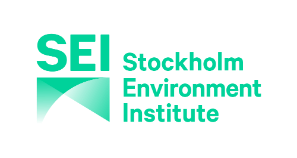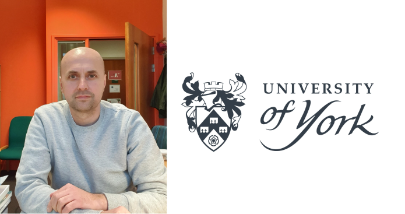
AI - Environment & Social Good?
Event details
The talk is open to in-person and online attendees and will take the form of a panel discussion from 2:30pm-4:00pm.
After the talk, we invite you to join us for a networking session and AI exhibition from 4:00pm-5:00pm (in-person only). This is an excellent opportunity to engage with our speakers, fellow attendees, and industry professionals.
Key themes:
- AI and its environmental impact
- Use of AI to achieve good
- Call for collaboration and action
Hosted by EX-BBC Senior News Editor and current Communications & Impact Officer at Stockholm Environment Institute (SEI) Jane Birch
Panelist 1: Professor of Sociology - University of York David Beer
Panelist 2: AI & Climate Change & Sustainability - Senior Research Fellow at SEI Steve Cinderby
Panelist 3: AI and its possibility of delivering public value - Social Science Research and news production for BBC News Bronwyn Jones
Please note that this is a hybrid event. If you have booked an online ticket, you will be sent the Zoom link the morning of the event.
Image credit: Alan Warburton / © BBC / Better Images of AI / Nature / CC-BY 4.0
About the Panelists


Jane Birch is a Communications and Impact Officer at Stockholm Environment Institute (SEI) Headquarters in Sweden where she leads communications for the Leadership Group for Industry Transition (LeadIT). Before joining SEI, Jane was a Senior News Editor for BBC England and has extensive experience as a journalist and strategic leader. She has a strong interest in technology and in particular how generative AI can be used in an ethical way to support communication and empower communities.

David Beer is Professor of Sociology at the University of York. His work looks at the social and cultural implications of transformations in technology and media. This has included work on the impact of data and algorithms on our social lives. His most recent book is The Tensions of Algorithmic Thinking: Automation, Intelligence and the Politics of Knowing.


Dr Bronwyn Jones is a social scientist and journalist. As a Translational Fellow for the Bridging Responsible AI Divides (BRAID) programme, she researches artificial intelligence and data-driven technologies in news production and their implications for the public sphere in democracies. As a DCMS Policy Fellow, she is exploring the risks generative AI poses for journalism as an industry and form of knowledge production. At the BBC, she covers regional news online and works with the research and development department to help newsrooms navigate technological change.


Dr Steve Cinderby has over 30 years of professional experience working in low-middle income countries and European research projects focused on community resilience, co-benefits of sustainable development initiatives and participatory development. He has specialised in the use of geographic information systems (GIS), creative participatory methods and behaviour change initiatives. He co-leads the SEI Initiative on City Health & Wellbeing investigating the impacts of secondary cities urban form on human and environmental health. This cross-centre initiative has case study cities in Kenya and Thailand where activities include physiological and environmental monitoring, participatory GIS and wellbeing surveys to assess how city environments are affecting mental health alongside in situ physiological measurements to quantify the impact of different urban environments.
General sponsor for the event

Contact
Nadine Waehning